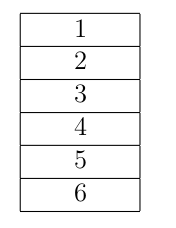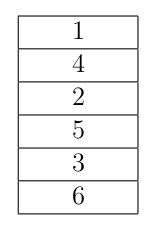Data Types
2020-07-23 |Data Types
- Primitive: supported by programming languages built-in: numeric,
- Numerics:
- Integer
- Real Numbers:
- Fixed Point
- Floating Point ==>
fraction x base^exponent(IEEE 754) [We can't express every number with base 2] - Decimal: Banking applications (Binary coded decimals) ==> each decimal encoded with binaries
- Binary
- Character: We have different type of encoding, ASCII (8 bits), UTF-8, UTF-16
- Strings: sequence of characters
- Static Length String (Fortran):
char asd [8] = "asdasd";==> asdasd__ - Limited Dynamic Length (C / C++):
char asd [8] = "asdasd";==> asdasd\0 end of the string. - Dynamic Lenght String:
string asd = "asda";
User Defined Data Types
Enumerated
typedef,enum,- Example:
enum Days {Mon, Tue, Wed, Thu, Fri, Sat, Sun}; - Make programs more readable
Array
array is a type constructor.
- subscript binding a[8] verdiğimiz zaman 8 subscript oluyor
- Static Array: global
int A[5];it will fiex - Fixed Stack Dynamic: array declared in function or subprograms
int foo() { int A[10] }; - Stack Dynamic:
int foo(int size) { int A[size] }; - Heap Dynamic: allocation done through heap memory
int A[3], subscript ranges can be larged dynamically.int A[6] = 0;we can assign something like that.
Array Implementation
- Array elements stored sequentially.
-------
100 - A[0]
104 - A[1]
108 - A[2]
112 - A[3]
116 - A[4]
-------
Multi-dimensional Array
Adress calculation will depend on row approach.
a : [ 1 2 3
4 5 6 ]
a[0,0] = 1
a[1,0] = 4
- Row Major: Go with row by row

- Column Major: Go with column by column

Formulas:
$$ address(A[j, k]) = address(A[0, 0]) + (“no of rows before j” ∗ “size of a row”) + (k ∗ element size) $$
$$ address(A[j, k]) = address(A[0, 0]) + (j ∗ element size ∗ R) + (k ∗ element size) $$
Records (structs)
- Aggregate of data elements.
- Memory allocated for struct variables will be consecutive
struct foo()
{
int a;
char b;
double d;
}
struct foo x;
x.a = 12;
Union
- In a struct all fields are active.
- Only one of the field is active.
- Largest element will be selected for size.
- We can use only one of the element from union.
- We don't know which field is active <= programmers responsibility
union MyUnion {
int i;
char c;
}
MyUnion x;
x.i
Pointer
- Values are addresses.
- Pointer arithmetic
a[0]
a[1]
a[2]
a[3]
a[4]
Example:
int a[5];
int *p;
int b;
p = a; // ==> a[0]
p = p+1 // ==> a[1] increment number of bytes
Reference Types: Automaticcly deference
 This was the end of the blog post. You can reach me via email umusasadik at gmail com
This was the end of the blog post. You can reach me via email umusasadik at gmail com